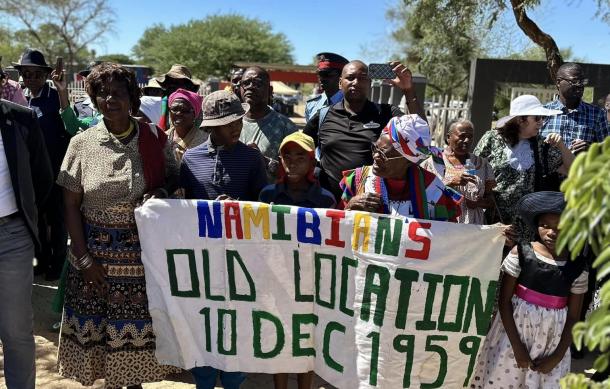
Today marks 75 years since the United Nations adopted the Universal Declaration of Human Rights in 1948.
However, demonstrations in Windhoek turned into violent clashes between the residents and the apartheid police, resulting in the killing and wounding of many natives 11 years after the document's passage in 1959.
These are the graves of those who felt the fatal wrath of the South African police forces on December 10, 1959.
Their crime was refusal to move to the newly established township of Katutura, which provoked resistance. It was a place they did not want to live.
Some of those buried here are unknown, with their graves only marked with numbers, while those who have survived the atrocities committed on that day have paid for a small piece of land in order to be buried among those who, together with them, refused to move to Katutura.
The alderwoman at the city of Windhoek, Francina Kahungu, was among those who consistently observed the commemoration of this day.
"Nowadays, we have experiences where people are forcefully removed by local authorities. This is a reminder to all of us that we have to negotiate; we might not use bullets as before, but psychologically, we might use bullets. This day is reminding us to shun such activities."
The International Day of Human Rights coincides with Namibian Women's Day.
And |Khomas regional governor, Laura McLeod-Katjirua, emphasised that the day should prompt all Namibians to understand that Namibian women have a greater role to play in all spheres of life, be it political, educational, or socio-economic activities.
Mcleod-Katjirua also called for the end of gender-based violence.
"Survivors of GBV may take out their frustration on their children and others, thus intensifying the negative experience of those around them; children, on the other hand, may come to accept violence as an alternative means to conflict resolution and communication."
On the day of human rights, the governor highlighted the importance of basic inherent human rights, maintaining that Namibia respects and will protect the rights of all humans.





